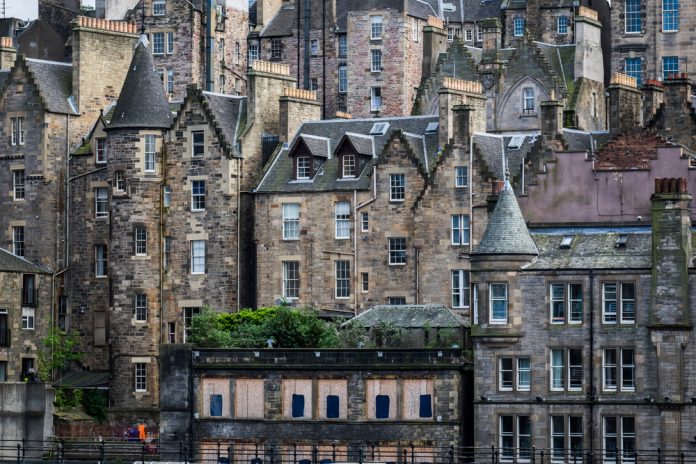Looking at the easiest and most difficult areas for an average, single UK earner to save up for a deposit on an urban property, estate agency Coulters carried out a study of 50 of the UK’s largest cities.
In its research, the company said: “Buying your own home is likely to be the biggest financial decision you ever make in your life. Of course, it’s not cheap, and saving up for a deposit on your dream home can take a long time.”
“We wanted to find out how long it takes to save up for a house deposit across the UK, so we took a look at the average house prices compared to salaries in the biggest UK cities to find out where is the easiest location to save up and get on the property ladder.”
Unsurprisingly to many following property market trends, many of the cheapest cities to buy property were found in the North of England and Scotland. Liverpool came in at number one, as the cheapest urban area for property in the UK, with an average deposit of £10.95k taking a standard resident between four and five years to save for (without help from mum and dad). With an average house price of under £110k, the city is remarkably cheap, and is seeing redevelopment in some areas, as it establishes itself as a hip city full of university students.
One surprising feature, perhaps, was Glasgow, with an average property price of around £165k, and a deposit expectation of beneath £17k taking the average resident around seven years to save up for. The city, while varied in its constitution, has a picturesque West-End district, strong night-life and shopping facilities, and three major universities.
| Rank | City | Region | Average Salary | Average House Price | Average Amount Required for 10% Deposit | Time to Save 10% Deposit |
| 1 | Liverpool | North West | £23,314 | £109,520 | £10,952 | 4 years, 8 months |
| 2 | Stoke-on-Trent | West Midlands | £22,143 | £131,541 | £13,154 | 5 years, 11 months |
| 3 | Kingston upon Hull | Yorkshire and the Humber | £20,682 | £128,631 | £12,863 | 6 years, 3 months |
| 4 | Bradford | Yorkshire and the Humber | £21,900 | £138,030 | £13,803 | 6 years, 4 months |
| 5 | Middlesbrough | North East | £21,080 | £138,516 | £13,852 | 6 years, 7 months |
| 6 | Blackpool | North West | £19,460 | £128,311 | £12,831 | 6 years, 7 months |
| 7 | Dundee | Scotland | £23,413 | £155,779 | £15,578 | 6 years, 8 months |
| 8 | Doncaster | Yorkshire and the Humber | £22,639 | £155,537 | £15,554 | 6 years, 10 months |
| 9 | Glasgow | Scotland | £23,541 | £164,699 | £16,470 | 7 years |
| 10 | Swansea | Wales | £23,019 | £167,483 | £16,748 | 7 years, 3 months |
In stark contrast, London came out as the most expensive city in the UK and this side of the Andromeda Galaxy (most likely). Despite the city’s residents earning around £10k more than residents in the cheaper urban locations, Coulters estimated that a single working resident would have to save for almost 25 years to afford the deposit on an average property, valued at £772k.
Some distance behind, and in second place, properties in Oxford are expected to cost a buyer an average of £519k, and take around 20 years to save up for on the standard £25.88k salary.
| Rank | City | Region | Average Salary | Average House Price | Average Amount Required for 10% Deposit | Time to Save 10% Deposit |
| 1 | London | London | £31,114 | £771,903 | £77,190 | 24 years, 10 months |
| 2 | Oxford | South East | £25,886 | £519,109 | £51,911 | 20 years, 1 month |
| 3 | Cambridge | East of England | £28,600 | £506,626 | £50,663 | 17 years, 9 months |
| 4 | Brighton and Hove | South East | £25,740 | £425,443 | £42,544 | 16 years, 6 months |
| 5 | Watford | East of England | £27,729 | £418,761 | £41,876 | 15 years, 1 month |
| 6 | Cheltenham | South West | £26,845 | £341,604 | £34,160 | 12 years, 9 months |
| 7 | Reading | South East | £28,039 | £355,102 | £35,510 | 12 years, 8 months |
| 8 | Slough | South East | £28,125 | £353,535 | £35,354 | 12 years, 7 months |
| 9 | Exeter | South West | £23,371 | £291,119 | £29,112 | 12 years, 5 months |
| 10 | Bristol | South West | £25,958 | £320,559 | £32,056 | 12 years, 4 months |
Currently a London resident myself, I’d take a closer look at locations such as Edinburgh (pictured above). The city not only has incredible history, amenities and rising cultural capital, but is seeing redevelopment of traditionally industrial communities by developers seeking to meet the demand for property in the charming Scottish capital.
Ranked as the best city in the UK to live in and the second best city in the world by Deutsche Bank, Edinburgh has seen its average property price rise by almost 4.5% in a year, to around £303k. Still a bargain compared to what you’d pay down South – as long as you can handle slightly heavier rainfall.






